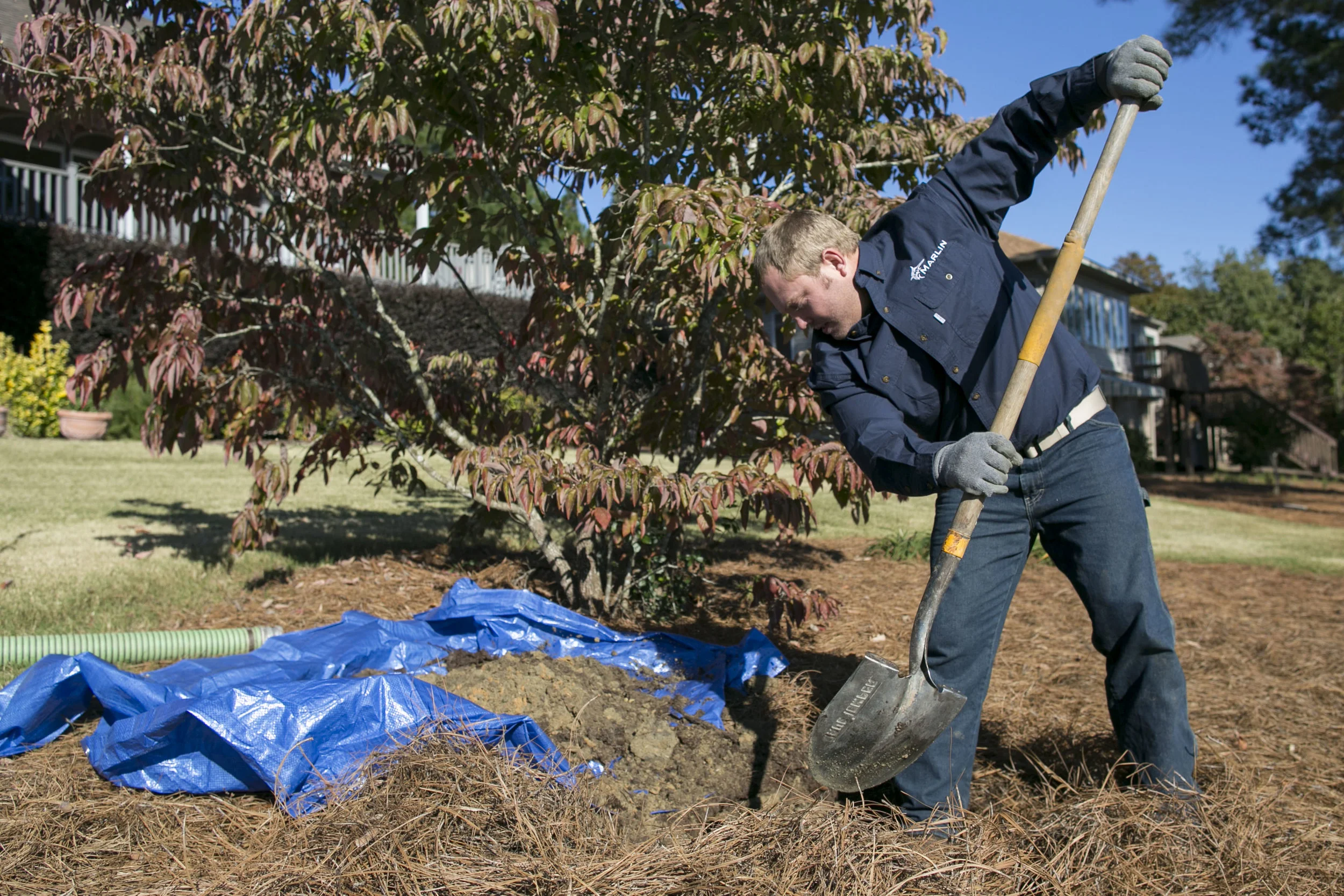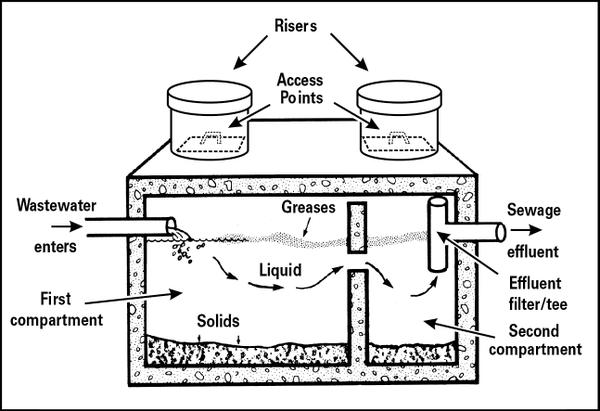Point-of-Sale Inspection Requirements
The North Carolina On-site Wastewater Contractor and Inspector Certification Board has developed a set of requirements for every on-site wastewater inspection performed in the State of North Carolina. The Inspector Standards of Practice and minimum requirements for inspections are not optional. Please see below for a list of requirements for on-site wastewater inspections in North Carolina.
The on-site wastewater system inspection shall be performed in accordance with 21 NCAC 39 .1004, 21 NCAC 39 .1005 and 21 NCAC 39 .1006. General Statutes, Rules and Minimum Inspection Requirements, can be viewed in their entirety at www.ncowcicb.info
Septic Tank Inspection Requirements
- Distance from house or other structure;
- Distance from well, if applicable;
- Distance from water line, if applicable and readily visible;
- Distance from property line, if said property lines are known;
- Distance from finished grade to top of tank or access riser;
- Presence and type of access risers;
- Condition of tank lids;
- Condition of tank baffle wall;
- Water level in tank relative to tank outlet;
- Condition of outlet tee;
- Presence and condition of outlet filter, if applicable;
- Presence and extent of roots in the tank;
- Evidence of tank leakage;
- Evidence of inflow non-permitted connections, such as from downspouts or sump pumps;
- Connection present from house to tank;
- Connection present from tank to next component;
- Date tank was last pumped, if known; and
- Percentage of solids (sludge and scum) in tank;
Pump Tank Inspection Requirements
- Condition of tank lids;
- Location of control panel;
- Condition of control panel;
- Audible and visible alarms (as applicable) work;
- Pump turns on, and effluent is delivered to next component; and
- Lack of electricity at time of inspection prevented complete evaluation;
- Distance from house or other structure;
- Distance from well or spring, if applicable;
- Distance from water line, if applicable;
- Distance from property line, if said property lines are known;
- Distance from finished grade to top of tank or access riser;
- Distance from septic tank;
- Presence and type of access risers;
Dispersal Field Inspection Requirements
- Vegetation, grading, and drainage with respect only to their effect on the condition of the system or system components; and
- Confirmation that system effluent is reaching the drainfield; and
- Evidence of past or current surfacing at time of inspection;
- Type of dispersal field;
- Distance from property line, if said property lines are known;
- Distance from septic tank and also pump tank if a pump tank exists;
- Number of lines;
- Length of lines;
- Evidence of traffic over the dispersal field;
Required Additional System Information
Advertised number of bedrooms as stated in the realtor Multiple Listing Service information or by a sworn statement of owner or owner's representative; and
Designed system size (gallons per day or number of bedrooms) as stated in available local health department information, such as the current operation permit or the current repair permit.
Requirement for a certified subsurface water pollution control system operator pursuant to G.S. 90A-44, current certified operator's name, and most recent performance, operation and maintenance reports (if applicable and available);
Type of water supply, such as well, spring, public water, or community water;
21 NCAC 39 .1002 (2) Requires written permission from owner or owner’s representative to perform the inspection must be acquired prior to the inspection.
General Exclusions
Inspectors and Contractors shall not:
(1) Offer or perform any act or service contrary to Article 5 of G.S. 90A or the rules of this Chapter; or (2) Offer or perform engineering, architectural, plumbing, electrical, pesticide or any other job function requiring an occupational license in the jurisdiction where the inspection, installation, or repair is taking place, unless the on-site wastewater system inspector or contractor holds a valid occupational license in that field, in which case the inspector or contractor shall inform the client that the inspector or contractor is so licensed.
Inspectors shall not be required to report on:
(1) Life expectancy of any component or system;
(2) The causes of the need for a repair;
(3) The methods, materials, and costs of corrections;
(4) The suitability of the property for any specialized use;
(5) The market value of the property or its marketability;
(6) The advisability or inadvisability of purchase of the property; or
(7) Normal wear and tear to the system.
Inspectors shall not be required to:
(1) Identify property lines;
(2) Offer warranties or guarantees of any kind;
(3) Calculate the strength, adequacy, or efficiency of any system or component;
(4) Operate any system or component that does not respond to normal operating controls;
(5) Move excessive vegetation, structures, personal items, panels, furniture, equipment, snow, ice, or debris that obstruct access to or visibility of the system and any related components;
(6) Determine the presence or absence of any suspected adverse environmental condition or hazardous substance, including toxins, carcinogens, noise, and contaminants in the building or in soil, water, and air;
(7) Determine the effectiveness of any system installed to control or remove suspected hazardous substances; (8) Predict future condition, including failure of components;
(9) Project operating costs of components;
(10) Evaluate acoustical characteristics of any system or component; or
(11) Inspect equipment or accessories that are not listed as components to be inspected in this Section.




